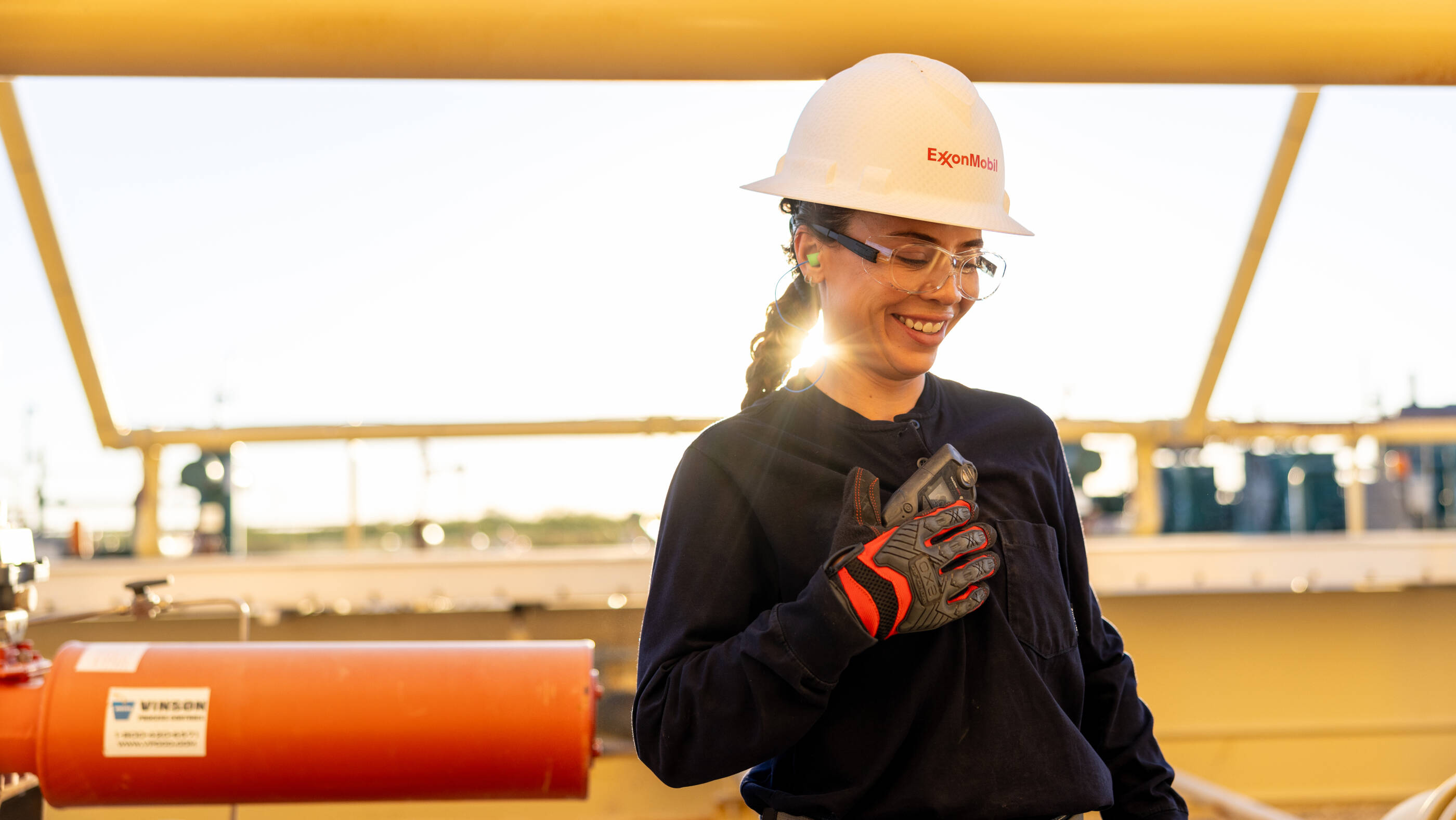4 min read
Trade associations
4 min read
Navigate to:
Trade associations
ExxonMobil provides support for a variety of trade associations, think tanks and coalitions to promote informed dialogue and sound public policy in areas relevant to the company’s interests and operations, including climate change. These areas include a wide range of topics, among them: corporate governance, environment, education, economic development, fiscal policy, international trade, labor/pension matters, civil justice reform, public health, regulatory issues, sustainability and workplace safety.
While some trade associations participate in the development of public policy, the majority of trade associations are focused on other industry-specific issues, including developing and implementing safety standards, sharing best practices, and professional development. Where trade associations do participate in public policy, we strongly encourage them to support initiatives that we believe in. This includes the goals of the Paris Agreement and support for cost-effective, technology-neutral emission-reduction policies that will help society achieve a net-zero future while meeting global demand for energy products.
ExxonMobil’s participation often includes taking leadership positions on trade association boards, policy committees and technical work groups, which provide valuable opportunities to learn from others and share our positions and principles. It would be impractical to expect perfect alignment between ExxonMobil’s policy positions and those of every trade association, and unreasonable to expect any single member of a given association to ensure that was the case. Yet, we consistently communicate our policy principles to the trade associations of which we are members.
It is important to note that there may be occasions where trade associations we are members of oppose proposed legislation, regulation, or other public policy initiatives we support. This may be due to disagreement on a specific element of the policy approach, rather than disagreement on the fundamental need to address climate change and society’s ambition to achieve a net-zero future. We therefore do not regard these situations necessarily as misalignment if the organization supports the need for action on this critical societal issue. The organization may simply prefer an alternative approach for valid reasons such as cost-effectiveness.
In assessing trade association memberships and any perceived policy misalignments, the company considers potential risks related to shareholder relations, legal, financial and corporate reputation. While we reserve the right to initiate, sustain or withdraw support for an organization at any time, several principles guide our approach:
- We believe our participation in trade associations enables us to effectively advocate for positions we support, share our views, learn from other companies, and influence trade association policy debates.
- We do not expect that a third-party organization made up of dozens or even 100s of members will be perfectly aligned with our views at all times.
- Our support does not constitute an endorsement of every policy position or point of view expressed by a recipient organization.
- We regularly review our memberships for alignment on climate-related policy issues and other topics. For those organizations deemed “partially aligned,” we find that – on balance and based on a variety of areas of policy beyond climate-related issues – there are sufficient net positive benefits for ExxonMobil to maintain its membership at the time assessed. Where misalignment exists, we will work within the organization to achieve alignment and advance, to the extent possible, support for our energy transition priorities. Where we fail to see sufficient alignment across critical issues, or where an organization is not committed to engaging constructively, we may choose to cease membership.
ExxonMobil’s advocacy for advanced recycling in Europe
ExxonMobil supports advanced recycling, often called chemical recycling, as a vital solution alongside traditional recycling methods. This technology is needed for hard-to-recycle plastics that would otherwise end up in landfills. With supportive government policy and laws, advanced recycling will help countries meet their recycling goals and assist brands in achieving their recycled content targets and ultimately helps prevent plastics from being discarded in the environment or incinerated.
ExxonMobil collaborates closely with partner organizations to advocate for advanced recycling in countries where we operate. By forming strong alliances, we aim to gain widespread support for advanced recycling initiatives.
We advocate for mandatory recycled content targets in packaging and automotive industries. To enable manufacturers to meet these targets, we support policy that includes a workable mass balance approach, which lets the materials produced through the advanced recycling process qualify as “recycled content.” This helps customers get the virgin-quality polymers they need for things like food and medical products, which traditional recycling methods cannot provide.
A well-designed policy framework is essential to encourage the use and scaling up of advanced recycling in Europe. Such a framework can make the permitting process for new projects easier. ExxonMobil is already working on projects in France, Belgium, and the Netherlands. A constructive policy environment will encourage investment in advanced recycling technologies the EU has deemed necessary to reach its ambitious recycling targets.







